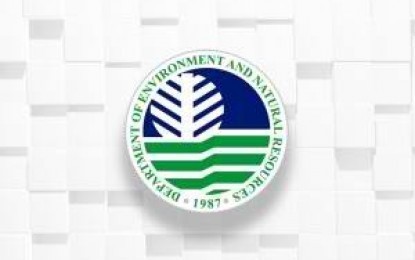
MANILA – The Department of Environment and Natural Resources (DENR), food giant Nestle Philippines, Inc., and the Caloocan City government are partnering to help boost the implementation of Republic Act (RA) 9003 (Ecological Solid Waste Management Act of 2000).
A memorandum of agreement (MOA) signed Friday will promote proper waste segregation, recycling and reuse communities along Tullahan-Tinejeros river system, which discharges into Manila Bay, to reduce the volume of trash for disposal and open up income opportunities from garbage while mitigating pollution there.
"Solid waste management remains a major challenge in the country especially in urban areas like Metro Manila," said DENR Secretary Roy Cimatu in his message during the virtual MOA signing event, highlighting why government needs partners in implementing RA 9003.
He said he is looking forward to seeing more partnerships on RA 9003, anticipating further rise in Philippine waste generation due to the continuing onslaught of novel coronavirus disease (Covid-19) pandemic.
Covid-19's emergence is fueling demand for and use of personal protective equipment and other disposable medical supplies.
DENR Undersecretary Analiza Rebuelta-Teh, Nestle corporate affairs chief Arlene Tan-Bantoto, and Caloocan's Barangay 164 Chairperson Mila Uy signed the MOA.
Teh said under the MOA, Nestle will build a materials recovery (MRF) facility in Barangay (village) 164.
The village will operationalize the MRF following RA 9003 while segregating waste at source and ensuring segregated waste collection within its area, she noted.
She said DENR will provide technical assistance on such matters and monitor compliance with RA 9003 and other environmental laws.
"With the MRF, we hope to see improved waste collection efficiency servicing even less accessible households, reduced quantity of solid waste to be disposed to dump sites and increased recovered recyclable materials for use in income opportunities for the poor," she said at the event.
Aside from segregating waste, RA 9003 requires the establishment of MRFs nationwide.
MRF is an area that "includes a solid waste transfer station or sorting station, drop-off center, a composting facility, and a recycling facility," said RA 9003.
Nestle Philippines Chairperson and CEO Kais Marzouki assured the food giant's support for implementing RA 9003, noting this company treats solid waste as an "urgent priority".
"We at Nestle Philippines recognize the impact of solid waste, particularly plastic waste, on our environment," he said in his message during the MOA signing.
He said Nestle is the first multi-national fast-moving consumer group in the Philippines to "recover and could process the equivalent amount of plastic we put out in the market".
Nestle is committed to make its product packaging 100 percent recyclable or reusable by 2025, he added.
"We are committed to do our part in shaping a waste-free future," he said.
Tan-Bantoto said Nestle is thankful for the opportunity to build an MRF for Barangay 164.
"We believe there is more to be done," she also said, noting Nestle plans to build two more city-based MRFs in the future.
The village officials thanked DENR and Nestle for helping address its waste problem.
"It's a big help to our community," Uy said at the event.
Teaching residents the proper way of segregating waste will improve solid waste management while enabling villagers to earn from recycling and reusing trash, she noted. (PNA)
